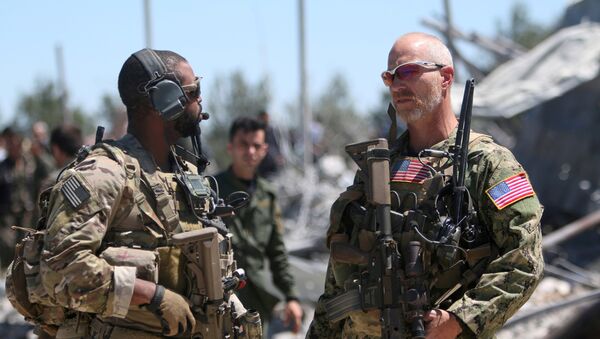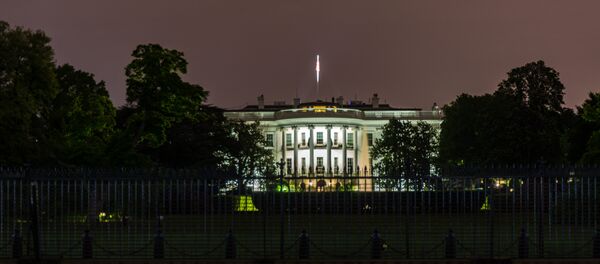Sputnik: The US president told his Turkish counterpart that the US is done with Syria. Do you think this is actually the case?
Adam Garrie: Well, the initial reports made it obvious that the proximate timing of Trump’s surprise announcement was implicitly related to his phone conversation with Turkish President Erdogan.
Erdogan essentially gave his US partner an ultimatum about America's partnership with the YPG/PKK terror group, which Turkey finds unacceptable. It’s frankly extraordinary that a country like the US would partner with a group that threatens the security of Turkish civilians and of Turkish territorial integrity.
Now we see the withdrawal order is being formally signed by the US president. That is being confirmed by military sources in the US. So it would seem that while the US is famous (frankly infamous) for announcing withdrawals that never actually happen, this one does appear to be the real thing. But, of course, it's not over till it's over.
Sputnik: In what way can this move by the US impact Turkey’s position in the region?
Adam Garrie: Well, Turkey has long had a strong position in the Middle East. Both in terms of soft power, things like Erdogan’s speeches on Palestine which resonate very widely throughout the area.
And so when you look at Turkey’s position in the Astana group, you can see that Russia, Turkey and Iran are collectively in the driver's seat in the peace process that all three of these partners really want to see. The US must realise, and even many US commentators are realising, that they didn’t get what they want in Syria.
But since they did vote for resolution 22 54 at the Security Council, Trump at least it seems to be saying, ‘Look, let Turkey, as a traditional US partner and NATO member, do its thing along with Iran and Russia.
READ MORE: Daesh Presence in Syria is 'Manna to US' — Veteran War Journalist
Because at least that way Turkey can talk to both the US and Iran and Russia, while the US has difficulty agreeing with Russia on anything other than Israel.'
Sputnik: We know that America has a working relationship with the Kurds, but what does this latest development mean for US-Kurdish ties?
Adam Garrie: The US doesn’t have a relationship with the Kurds. The Kurds are a very diverse group, who themselves are very divided politically and indeed culturally in many respects.
The US has or perhaps had a partnership with the YPG/PKK terror group. And it looks as though that partnership is coming to an end. Ultimately, the areas in eastern Syria must be restored to their sovereignty, they must be seen as an integral part of Syrian territorial integrity.
Sputnik: Now, following the development, Erdogan and Israeli Prime Minister Benjamin Netanyahu have exchanged heated words. What consequences might this have on Turkish-Israeli relations?
They want to build a pipeline into Cyprus, then into the Hellenic Republic and beyond that into Italy. Cyprus and Greece are both long-time rivals of Turkey, to put it mildly.
So, the gas politics, as well as the increased security partnerships that Israel is constructing with Turkey’s long-time rivals means that the rhetoric exchange between Ankara and Tel Aviv is more than showboating.
READ MORE: US Envoy for Anti-Daesh Coalition Resigns Over Syria Pullout
There’s a real underline scene to this and that is gas as well as security cooperation in the region. Israel is attempting to build what can be called an anti-Turkish alliance. And because of that, I see Turkish-Israeli relations getting worse in the new year rather than better.
Views and opinions expressed in this article are those of the speaker and do not necessarily reflect those of Sputnik.






